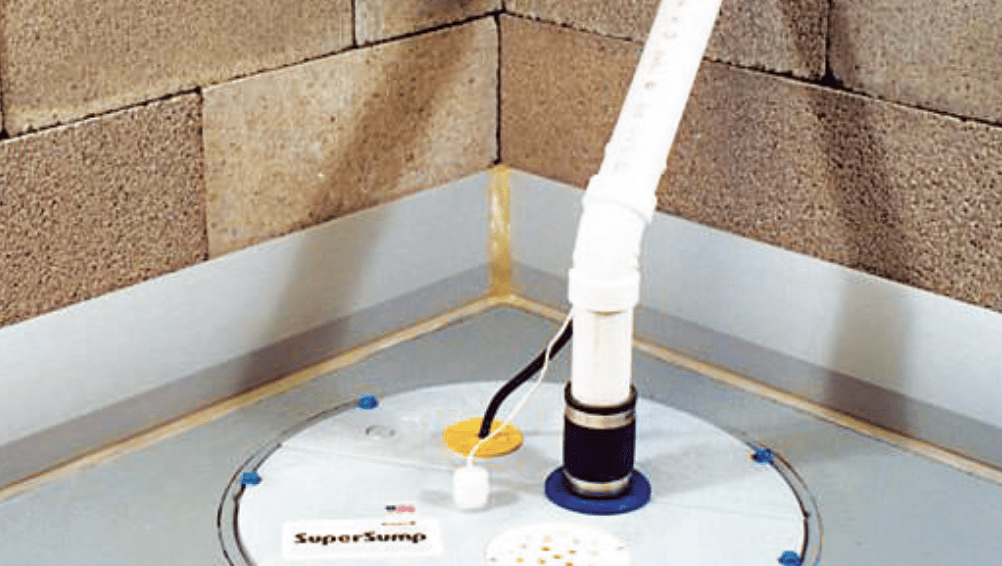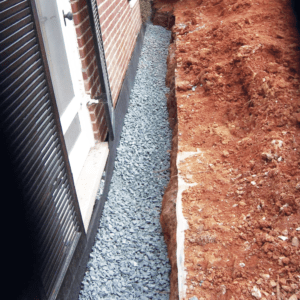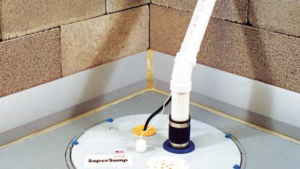
By Carline Martin
This is the first of a series of articles that will appear monthly to help homeowners and potential homeowners in our community with a variety of home and real estate issues. As a realtor, I am often approached by homeowners and buyers to provide answers to questions to all things home related. In my quest to provide answers, I have relied on my own expertise, as well as that of many trade professionals I have come to know in our community. The information I have provided has usually been appreciated, so I decided to share what I know with the Greenwich community.
Here are a couple of very timely questions that I recently addressed for my clients:
Q: My basement has flooded. What should I do?
A: The first thing to do in this situation is to remove all standing water with a water pump or in the case of a small amount of water, a shop vac. Once the water has been removed, eliminate the moisture with a dehumidifier. Then thoroughly clean the area with a bleach solution to remove or prevent mold from forming. It is a

good idea to leave the dehumidifier running for a few days afterward. For a serious flood, it may be necessary to contact a remediation company, such as Serv Pro.
You should also contact your insurance agent immediately to review what type of flood coverage, if any, that you have. It is important to note that flood claims can be very difficult to navigate. Most homeowner’s insurance policies do not cover flooding and, typically, homeowner’s whose homes are not located in a flood plain do not opt for a separate flood policy.
John Sparano, owner of Putnam Insurance Agency in Riverside, cautions that even FEMA flood policies, issued through the National Flood Insurance Program, can be extremely limited. He notes that a rider can be added to your existing homeowner’s policy to cover claims related to sewer back up and sump pump issues. This can protect you if flood waters enter though a sewer line or sump pump. Most flood insurance policies mainly cover only mechanical damage, however, coverage varies depending on the type of home and circumstances, so it is wise to discuss your own personal property needs with your agent. For more information check out this FEMA brochure:
https://www.fema.gov/sites/default/files/2020-05/101844-004_SummaryOfCoverageBrochure_v4r5_0.pdf
The best approach, however, is to prevent flooding in the first place. Companies, such as Connecticut Basement Systems, are experts at basement waterproofing. Blair Steinberg, with Connecticut Basement Systems, explained the 3 main components to their waterproofing system.
The first step is the installation of a French drain around the perimeter of your basement. A French drain is a trench that is filled with gravel and is intended to divert water away from a structure. Once the drain is installed, it is then restored with concrete. French drains got their name from their inventor, Henry Flagg French of Concord, Massachusetts and have been successfully used since the mid 1800’s. There are several variations of this type of sub-surface draining system that have been used for centuries, however, it was French who popularized them in 1859.
The next step is the installation of a sump pump, which allows for the automatic removal of any water that should enter the basement. The pump installed by Connecticut Basement Systems comes with battery back-up system and alarm that sounds off to let you know if water has risen past the point where the pumps should have turned on. This is an added layer of protection that is used to remove water from the basement and divert it to an area such as a storm drain or drywell.
Finally, an energy efficient dehumidifier is installed to keep the basement dry and free from mold. There are several types of dehumidifiers that are typically used to remove home moisture build up. Many have a reservoir that will fill with the water removed from the air and requires periodic emptying. The system installed by Connecticut Basement Systems is a high-performance dehumidifier that does not require emptying of a reservoir.

This system is designed for ease and peace of mind for the homeowner. Price varies depending on each home and each system is designed to address specific circumstances. Connecticut Basement Systems provide free estimates and it is well worth the effort to speak with one of their professionals.
Given the current changes in our climate and the increase in flooding, an ounce of prevention is worth a pound of cure.
Q: I had a safe installed in my basement that I was told is burglar proof and fire proof. I store many of my important documents in there to protect them in the event of fire. My basement flooded during the last heavy rainstorm and my documents in my safe were destroyed. Shouldn’t my safe have protected them?
A: Contrary to what most safe owners believe, safes are not, typically, waterproof. Many assume that if a safe can protect against fire damage that, surely, they must be able to protect against water damage. Not so! I spoke with Andrew Martin, owner of Greenwich Lock & Door, Inc. and he confirmed that when it comes to safes, fireproof does not mean waterproof.
As a full-service retailer of safes in Greenwich for 20 years, he said his recommendation to his customers is to consider an installation site on the main or upper level of their home. Even basements that don’t flood are prone to moisture. At the very least, he recommends keeping desiccant packets inside the safe, which are designed to absorb moisture. He further suggests that if you must install your safe in a basement, that a platform be erected to elevate the safe and that you store any items prone to water damage inside heavy-duty plastic bags.
If you have a real estate or home related question for which you would like a professional opinion, please email me at carlinemartin@bhhsne.com with “Sentinel” in the subject line. Each month, I will provide answers to a couple of selected questions. I look forward to hearing from you!
Carline Martin is a realtor with Berkshire Hathaway/New England Properties in Greenwich. She may be reached at carlinemartin@bhhsne.com or at 203-249-9975.




